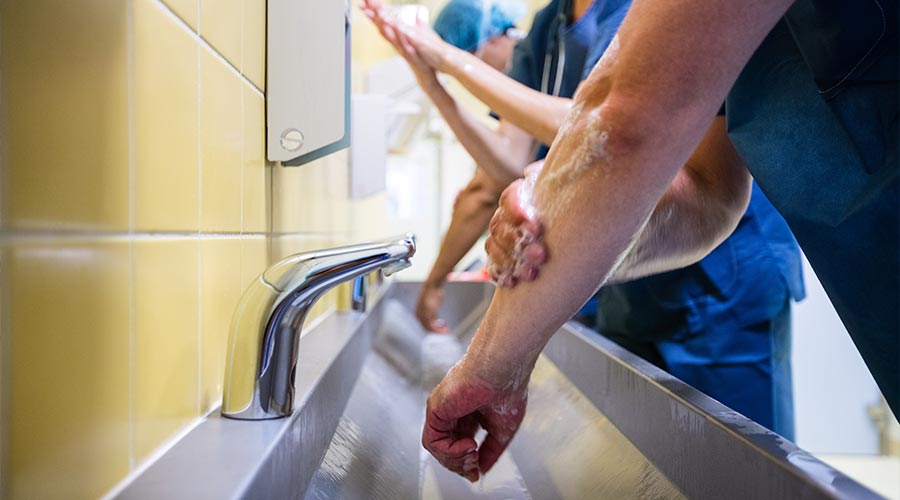
The Leapfrog Group announced the release of its 2024 Hand Hygiene Report. Since Leapfrog began public reporting on hand hygiene in 2020, the percentage of hospitals meeting its rigorous standards has soared from 11 percent to 74 percent by 2023.
The report reveals a 78 percent rise in hospitals holding leadership directly accountable for hand hygiene through performance reviews or compensation adjustments, suggesting that hand hygiene—and the safety of patients—is increasingly a priority among hospitals.
Improved hand hygiene is a vital intervention for reducing healthcare-associated infections and enhancing patient safety in hospitals, and the Leapfrog standard is the most rigorous in the industry.
"I congratulate hospitals on achieving this dramatic improvement in hand hygiene," said Leah Binder, President and CEO, The Leapfrog Group. "Leapfrog will continue to publicly report each hospital's performance and uphold the highest possible standards for excellence. We believe transparency and high standards truly galvanize change, and we are proud to recognize the hospital leaders, clinicians, and teams that so successfully make that change."
The report also reveals a dramatic increase in the adoption of electronic hand hygiene monitoring systems. In 2020, only 4.7 percent of hospitals employed such technology; by 2023, this figure has more than doubled to 10 percent. This growth demonstrates a broader trend toward integrating advanced tools to address the limitations of human observers.
Leapfrog's Hand Hygiene Standard mandates that clinicians and staff adhere to hand hygiene best practices from a national Hand Hygiene Expert Panel and is adapted from the World Health Organization's "Hand Hygiene Self-Assessment Framework." To date, there is no standardized or feasible mechanism to measure actual compliance levels among staff within each individual hospital; Leapfrog verifies evidence-based best practices known to achieve high levels of compliance are in place.
Hospitals are evaluated across five key domains:
• Monitoring: Checking if hand washing is done correctly and often enough.
• Feedback: Using data to see how well hand hygiene practices are followed and drive improvements.
• Training and Education: Teaching the right way to wash hands through physical demonstration.
• Infrastructure: Making sure there are enough hand sanitizer dispensers and washing stations.
• Culture: Establishing a strong focus on hand hygiene at every organizational level.
"Hand hygiene is fundamental to preventing infections in all health care settings, as pathogens on unclean hands can easily spread between patients or contaminate clean surfaces," says Emily Landon, MD, associate professor of Medicine at the University of Chicago, and Leapfrog Expert Panelist. "While the report highlights a dramatic improvement in hand hygiene practices, continued vigilance is essential to sustaining progress and closing gaps in compliance to protect more patients. So, we are grateful that Leapfrog continues to report on this critical standard."

 The Down and Dirty on Cleaning in Virus Season
The Down and Dirty on Cleaning in Virus Season How Surfactant Use is Expanding in Commercial Cleaning
How Surfactant Use is Expanding in Commercial Cleaning Operational Excellence Series 2025: Better Budgeting
Operational Excellence Series 2025: Better Budgeting